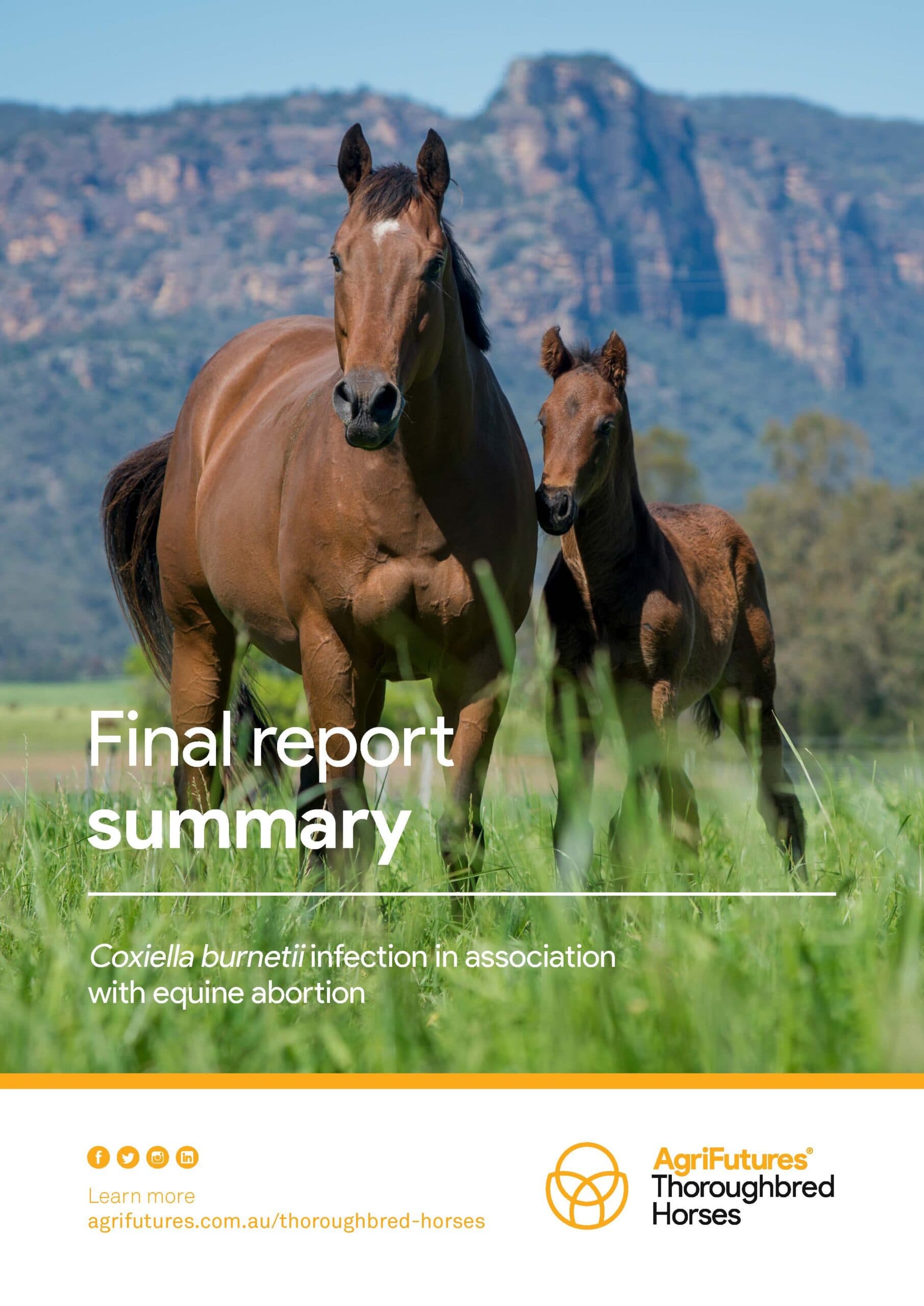The Australian thoroughbred breeding industry is the second-largest in the world, behind the United States. About 13,000 live foals are born annually from about 19,000 broodmares covered (2016-17 estimates). This represents a success rate of approximately 68%, a figure which factors in both non-conception and pregnancy loss. The cause of pregnancy loss within Australian thoroughbreds is not well-defined, and understanding these causes is a high priority for the industry. Identifying the causes allows for treatment and possibly prevention of pregnancy loss.
Coxiella burnetii, better known as ‘Q fever’, is a cause of reproductive loss in other animal species, particularly ruminants. C. burnetii is a zoonotic disease that can be severe or life-threatening, and may cause premature delivery, low birth weight and stillbirth in pregnant women. Previous research has shown an association of C. burnetii to equine pregnancy loss. However, this has not been verified in Australia.
Research into this disease is a priority for both human and equine health. Previous work by the research team has detected C. burnetii in historical cases of abortion in Australia, but its prevalence has not been researched. This research was undertaken to understand the significance of C. burnetii in equine pregnancy loss in Australia and any related risk to human health. The project confirmed the presence of C. burnetii in equine abortion samples, specifically in New South Wales and Victoria. The impact of this research demonstrates the need for the Australian thoroughbred industry to add C. burnetii to the list of possible causes of pregnancy loss. The industry also must remain vigilant against the possible horse-to-human transmission of C. burnetii.





